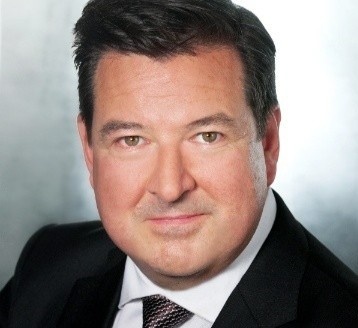In AM's latest '10 Minutes With...' supplier interview Aston Barclay chairman talks to AM about the automotive remarketing business's growth since acquisition in 2017 and what will come next.
You joined Aston Barclay in 2019. What is your background?
I’ve been running companies since 2000, specialising in improvements and big challenges. I joined (Aston Barclay owners) Rutland Partners in 2017 after which there was a period of significant change. There was the acquisition of the Donington site, Independent Motor Auctions and The Car Buying Group (TCBG). This is the fourth automotive company I have run – the previous one was circa £60 million with six companies over three countries – but they were very much manufacturing companies. My focus has always been on the fundamentals of a business, which is the people and the detail. Whenever you open new sites, effectively doubling the size of the business, those strategies have already been set but the issue is ‘do we have the right people and are they in the right place?’ It was clear TCBG was a great business from the start, but we needed to move to a funder-led business model. There’s a stage in every business where you need to move on from being an owner-operator. It’s been great to see an already successful business go through the roof in terms of compound equity. That has been the major change, really turbocharging TCBG – and the work on that continues. This year is all about bringing the business together with our group finance and HR and also product. We need to ensure we’re maximising the best of TCBG.
Following the appointment of (Car Buying Group managing director) Tom Marley as Aston Barclay Group’s new chief executive what steps have been taken to more closely align the two elements of the business?
As the business gears up for a period of growth, making sure everyone is focused on the right core message is important. That’s why the leadership team has defined what the group’s vision, mission and values are. It sets the stall out for what we want to achieve and how we’ll do it. A business-wide series of internal communications has been shared with all employees on what the future holds for the business they work in, and how they can contribute to achieving success. Giving the group a well-defined common goal has always been an important tool in helping Aston Barclay realise its success and updating them for this new focus on the future will help align all employees for the future.
With COVID-19’s national lockdowns hopefully well behind us, how has the pandemic changed the way Aston Barclay Group operates?
Aston Barclay Group went through a period of heavy investment in its digital capabilities prior to the pandemic. The future of the industry was clear, and so our digital tools were overhauled to offer our customers a wider and more meaningful choice in how they buy and sell with us. As a result, when the pandemic began, we were able to adjust the proposition within a week to offer a wholly online sales programme, with auctioneers hosting sales from their living rooms, and with vehicles lotted remotely. The early sales were relatively low volume while our customers worked through their own business’ new processes, but it didn’t take long for the Government to define car sales as being a critical element of the infrastructure requirements for UK PLC. Car dealers needed cars, and our vendors needed to keep their stock flowing into the market, so our purpose was very clear. Since then, Aston Barclay has been first to market a number of times; first to offer online sales, first to allow collections and first to open up the halls in a meaningful way. The decision to open the auction halls to the public wasn’t one taken lightly. Clearly the business had to be cautious, where we put our people at the very heart of the decision. Making such a big change to the status quo at the time had to be done in a sustainable way, so customer surveys were undertaken to understand what level of appetite existed for a return to physical. The results were very clear. For some profiles of vehicle, it simply isn’t possible for customers to buy that product online. Customers want to see, touch and hear that stock before buying. For Aston Barclay, a phased, safe return to physical sales while maintaining our enhanced online offering was a challenge, but the results speak for themselves.
Rutland Partners has been involved for four years now, what’s next for ownership?
Rutland has been a fantastic partner for Aston Barclay. During 2017/2018 it invested heavily in the group with the expansion in two mega-centres, Donington Park and our head office at Wakefield. Even during the lockdown, the investment continued, with further digital enhancements and, importantly, a commitment to a full learning and development programme for all colleagues. Under Rutland’s ownership profits have been grown by more than 70% and volumes are up in excess of 22%. That is notwithstanding the huge impact of COVID-19 in 2020 and 2021. Aston Barclay has managed to outpace every possible measure with a keen focus on retaining key customers, winning new business and growing TCBG’s market position.
So, growth is the target, but what targets have been set?
We have a big target to ramp up the volume of vehicles Aston Barclay remarkets this year by more than 27%, and then in 2023 that rises by a further 18% or more. While they are big steps, the foundation that has built during the past year has meant the business is able to scale easily. The team is now very focused on winning new business, and with the strong flexibility provided by our omnichannel approach, servicing all our current and future customers’ needs is straightforward. Our burgeoning closed sale programme is helping dealer networks service their own business with stock distribution. Our OEM sales programme where vehicles are all held, inspected and distributed remotely is delivering cost savings for both Aston Barclay and the customers for a product that is for the most part still under manufacturer warranty. The Car Buying Group has even bigger targets, with volume growth ambitions of 55% this financial year, and 40% in the next period. TCBG is also adopting new strategies in winning new work, with a recent deal to purchase vehicles from an online dealer. In all that it does, Aston Barclay Group is willing to try new and innovative ways of working, not only with the tools and technology it employs, but also with commercial deals between potential customers, allowing it to stand out from the crowd.
How is Aston Barclay growing its client base to help drive increased volumes?
Even in recent months, the auction business has won a multitude of new contracts, including MotorDough and Gates Ford, with contract renewals flooding in. Customers like that we remain resolutely focused on each and every vehicle that passes through the business, from buying it from the consumer, through the processing team right back into the wholesale market. They also tell us that, while performance remains a critical factor in the decision to award us new or additional work, our approach to being able to innovate and move the business quickly to suit their needs is a differentiator when comparing us with rivals. With the changes in the marketplace, including one of our competitors buying dealer groups, we are seeing other dealers coming to us as they become concerned about conflicts of interest in competitor offering. These changes are allowing us to stand alone as a truly independent vehicle remarketing partner. A lot of car buying platforms have been launched in response to the used car supply shortages of recent years.
How does TCBG differentiate itself?
From day one the guys at TCBG set themselves up to be different from the market leader. We buy from a motorist’s front door without quibbling. If we make an offer, we stand by it. In COVID, especially, the mentality of sellers changed. They realised that once you’ve travelled half an hour from your house to sell your car, you’re not really in a position to haggle. There have been changes in the market – a number of new entrants – but most have found it hard to go up against a business like ours, which has tens of thousands of positive reviews.
Businesses across many sectors have experienced issues with their logistics operations in 2022. How has this affected the Aston Barclay Group?
As you grow, the problem of logistics compounds. This year, we are taking on a specialist logistics manager and we’ll run our own logistics operations in regional areas. The time is right to really beef up that area. Currently we have 14 of our own HGVs and a vast number of trade plate drivers but, largely, it’s third-party professional suppliers. The role of that logistics manager will be to move all of that logistics buying into the 21st century.















Login to comment
Comments
No comments have been made yet.